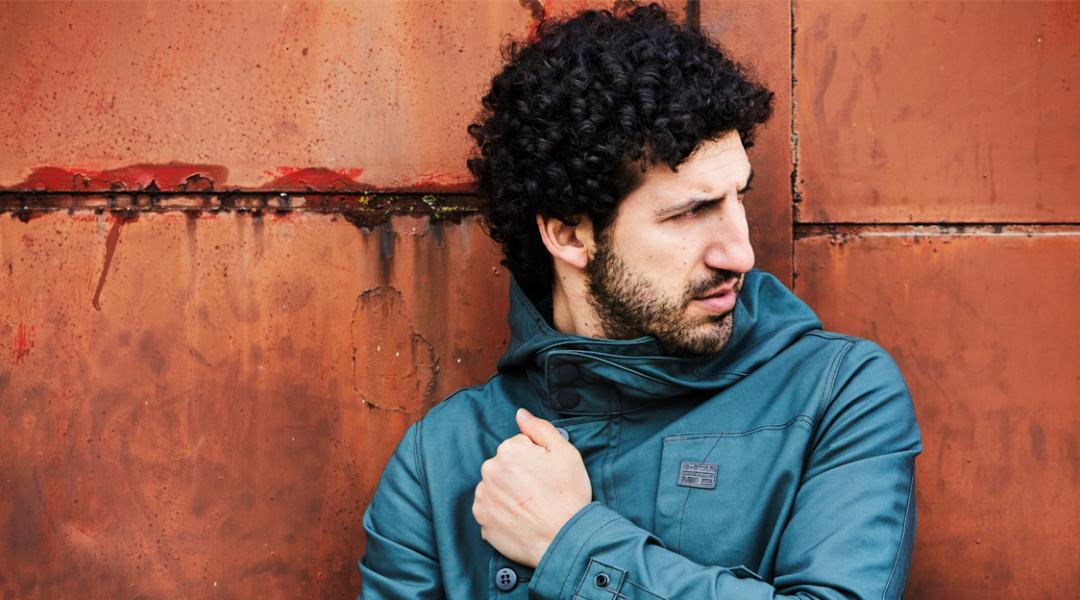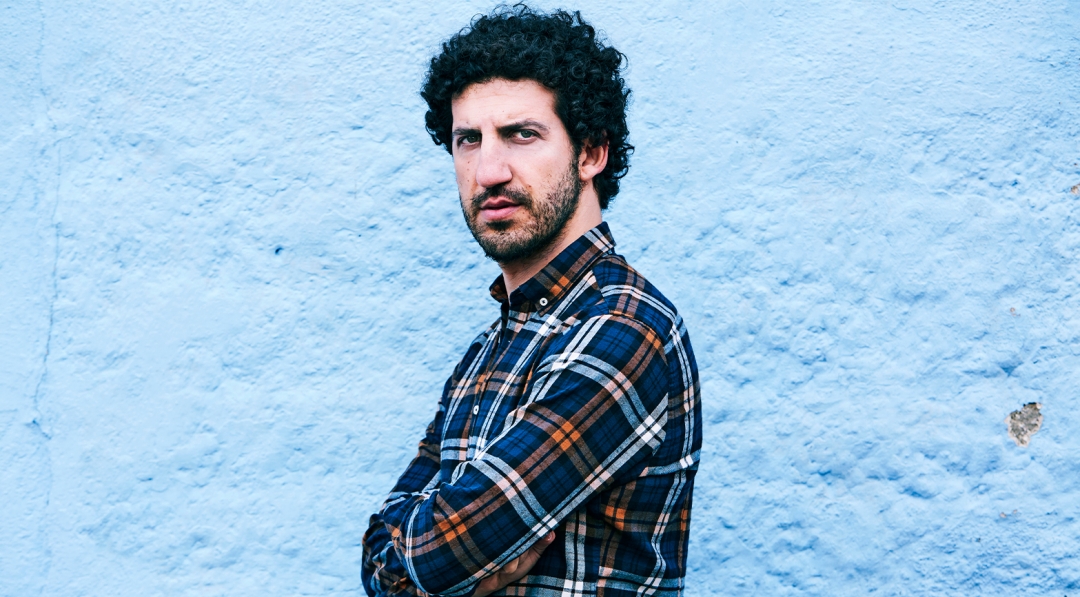Marwan
A 21st-Century Troubadour

Writer, singer, composer, singer-songwriter. His great ability to deal with complex issues full of sentimental motivations simply and personally has brought him success, fame and recognition. In December, he’ll close the tour for his latest record, ‘Mis Paisajes Interiores’, in Madrid, during which he has offered more than two-hundred concerts in the last three years between Spain and Latin America.
The son of a Palestinian and a Spaniard, Marwan (Madrid, 1979) is an artist that has managed to make millions of people see themselves in the stories he creates both in poems and songs, which also reveal his inner fears and demons. The young author of bestselling poetry books such as Todos mis futuros son contigo (Planeta) [All my futures are with you], La triste historia de tu cuerpo sobre el mío (Editorial Noviembre) [The sad story of your body over mine] or Los amores imparables (Planeta) [Unstoppable loves] announces that he’ll be launching a new record, El viejo boxeador, in 2020. Marwan is one of the most notable spokespeople of so-called urban poetry, a literary phenomenon that has contributed to lyrical poetry being at an all-time high in Spain right now.
What do you think is the main virtue of your work as a poet?
I guess its simplicity, its closeness and its ability to deal with sentimental topics. Given my years of going to therapy, I think that writing simply about complex psychological issues comes quite naturally to me. Well, the fact that I’ve been in touch with my feelings from a young age also helps me to write about them and talk about things that people feel connected to. I’m fascinated about knowing what’s behind our feelings, about finding reasons and getting to the bottom of them. I think I’m good at that, more than my technique as a poet, which still has a long way to go.
“I’m fascinated about knowing what’s behind our feelings, about finding reasons and getting to the bottom of them”
Have poetry and music been a kind of therapy for you?
Music and poetry have been a blessing in my life, but I wouldn’t go as far as calling them therapy, because I still have my demons, even though I talk about them in songs and poems. They definitely both comfort me, but more than healing me, they’ve kept me company. They’ve helped me to get to know myself better, to know what I was feeling at certain times, and that is already a lot. But, above all, they’ve allowed me to express myself and helped to bring order to some sentimental issues. That’s indeed been therapeutic.
As a writer, do you consider yourself part of a generation?
Not long after I published my first book, other authors with similar styles appeared. I guess we’re a generation due to our proximity, although that’s not the kind of poetry I tend to read.
Which Spanish contemporary authors do you identify the most with?
I love Benjamín Prado, Luis García Montero, Karmelo C. Iribarren, Batania, Juan Bonilla, Rodolfo Serrano, Vicente Gallego, Manuel Vilas, Luis Alberto de Cuenca and some others. They’ve all been my teachers, although I still have a lot to learn from them.
Which is your poetry’s leitmotif? Which is your recurring theme or concern?
I touch on many, mainly sentimental, topics but I try to go beyond that, and deal with psychological aspects, that is, why we feel certain things. In my last books and records, I’ve written a lot about love and heartbreak, throwing myself into tumultuous relationships, because in them you get to experience many human emotional aspects which make us grow and learn. You give everything in these relationships: love, generosity, empathy, resentment, forgiveness, manipulation, self-esteem, confidence, mental blocks, assertiveness... They’re very difficult and force us to face certain things that we otherwise wouldn’t, making us grow to overcome them. I also write about social poetry and songs or about happier, more dynamic topics, such as the song “Conviene saber”, which is a reminder of certain essential values, the one I dedicated to Madrid (“Puede ser que la conozcas”) or “Canción de autoayuda”.

Marwan, the voice of simplicity. © Courtesy of the artist
Will you broach other subjects in your next record?
Yes, it includes songs about forgiveness, people who help us, the right to feel angry, refugees...
What stage is your new record at?
It’s called El viejo boxeador and will be released next year by Sony. It may be published in record-book format, I’m not sure yet, I’ve got to think about it still. Right now, we’re in the process of developing the songs. Even though they’ve almost all been written, I’m playing around with the lyrics, composing new songs, etc. And I’m also preparing poems for a new book, which doesn't have an exact release date yet. The record is at a more advanced stage and will come out first.
Which are your literary role models or writing that has left an impression on you as a writer?
Everyone I mentioned before and others like, Benedetti, Pablo Neruda, Wislawa Szymborska, Miguel Hernández or Bukowski.
And as a composer, who has influenced you as a musician?
Mainly, classical singer-songwriters and musicians from the previous generation: Sabina, Serrat, Luis Eduardo Aute, Silvio Rodríguez, Jorge Drexler, Pedro Guerra and, especially, Ismael Serrano. I’ve also been influenced by other authors such as Glen Hansard or Damien Rice, two Irish singer-songwriters who are today’s bellwethers.
Do you know how many books you’ve sold globally?
Between my three books and two record-books, more than 200,000. If we’re talking only about books, around 165,000 copies.
Which is the key to reaching such a wide audience?
Perseverance and vulnerability. I believe that I manage to generate empathy in many people with what I do. I’m constantly told that people feel like I’m telling their life story, and that’s beautiful.



